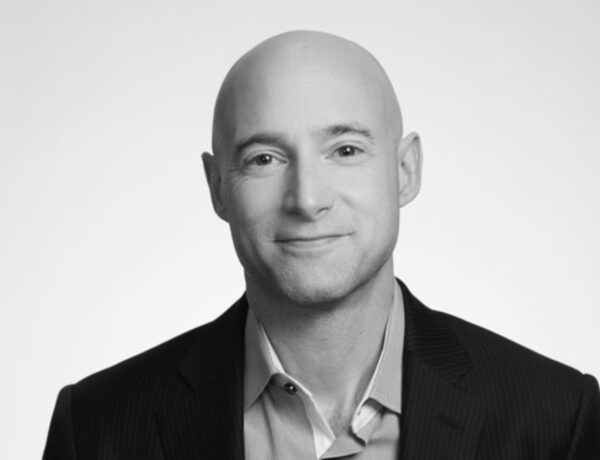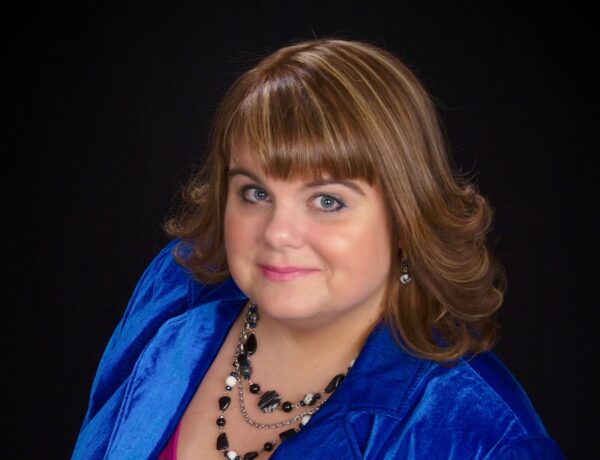Elissa Bassist, an essayist, humor writer, and editor of the Funny Women column on The Rumpus, is known for her cultural and personal criticism. Her work has been featured in various publications, including The New York Times, Marie Claire, Creative Nonfiction, and NewYorker.com. She is also the author of HYSTERICAL, published by Hachette.
Hi Elissa, welcome to Famous Writing Routines, great to have you here with us today! Your book, HYSTERICAL, is a memoir about the development of a woman’s voice in a culture that often silences women. Can you tell us about your own journey to finding and amplifying your voice?
Growing up, I got the sense that all girls can be beautiful if only we memorize sixty-nine sexual positions and let boys finish our sentences for us. So, speaking up for myself is not how I learned English. Instead, I became fluent in Apology, in Bowing Down, in Miscommunication, in Trying to Say the Perfect Thing, in If You Don’t Have Anything Nice to Say, Then Don’t Say Anything At All.
Then, in my mid-30s, I got sick, and long memoir short, part of my problem had something to do with my silence and with what I’d suppressed because it wasn’t cute to wear my heart on my sleeve. I had to get back my voice to get back my health and my sanity. Which is tricky in a culture that can’t stand a woman’s voice and—not to be dramatic—that prefers a woman’s death to her opinion.
In Hysterical I write about talking cures that helped me: regular therapy, scream therapy, exposure therapy, massage therapy, EMDR, and “expressive writing.” Doing all that taught me how to talk about what I couldn’t/“shouldn’t,” how to say I was mad when I felt mad, how to say no, how to ask as many questions as I have, how to not apologize at the top and bottom of every minute, and how to “risk”—risk coming off badly, risk opening myself up to being misunderstood or ghosted or judged and criticized, risk being disliked or disrespected, risk being regarded as not nice, curt, aggravating, abnormal, and loony.
The book covers a range of topics, from medical gaslighting to the silencing of women’s voices to The Little Mermaid. How did you balance personal narrative and cultural critique in your writing?
Everything I learned about writing a book I learned through rejection. Many agents wanted more cultural critique/research/Malcolm Gladwell cosplay. This sounded boring. Couldn’t I just rant at readers to convince them of my personal experience? Apparently no.
One agent gave me the note that clicked: “The only thing I like in your book proposal sample chapter is your reference to Beverly Hills 90210 to talk about violence against women.” Not everyone had my boyfriends—a lot of people did—but almost everyone watched must-see dead-girl TV that romanticized violence against crazy, mouthy bitches.
The more I used cultural references, research, reporting, history, cultural criticism, the more I saw what they do:
- help readers reach a shared understanding/rage
- put experience in perspective, which transforms it
- eschew self-pity
- tell a truth in a way people can hear it (vs. a sob story)
It turns out that it’s not enough to say “I’m crazy” because other people and institutions and cultural forces make us crazy; crazy is a reaction. Also that I’m not the only one who has experienced my experience and that personal testimony is neither personal nor sufficient.
Here are my tricks to balance the personal and the cultural:
- For everything that happened to me, I asked why (why did I do what I’d done; why did I think what I’d thought; why did I say what I’d said or why didn’t I?), and I answered every “why” with an investigation or context.
- For every scene or testimony I added research or critique. For every story, I added a statistic, or for every statistic, I added a story. I aimed for a 50:50 ratio of speaking strictly for myself and from the environment I was born into that shaped “my” “self.”
- As a heterosexual-ish, cisgender, able-bodied, middle-class white woman with a limited and skewed perspective, I read harder and added perspectives and voices other than my own to tell a better story.
You also discuss the physical manifestation of repressed emotions and the impact of society’s expectations on women’s voices. How do you see these issues affecting women today, and what do you hope readers will take away from HYSTERICAL?
To me, this question is another question: Who gets to rage and who must repress their rage and make themselves ill?
Study after study associates women, rage, repression, illness, heart-related disease, cancer, and death. Our bodies often churn up emotions or trauma not in words (because it isn’t “cute”) but in headaches and poisoned cells. Part of this is our social evolution, which has made cancer in women more socially acceptable than rage. Stifling rage is just good manners!
I wrote Hysterical to reclaim my voice (and emotions and agency and sanity) in a world that dismisses women as “hysterical” for speaking their minds—and I hope readers copy me.
Based on the talking cures I share in Hysterical, I hope readers who are women finish the book and then unmute themselves and listen to their voice above all others and use it without regret and scream whenever they want and make more scenes and ask too many questions and voice their every emotion and say no with abandon and apologize less (earlier I apologized to a man on an airplane when he hit me in the head) and speak up about everything they’ve been told not to talk about because it isn’t “nice” and stop being so nice, so sweet, so polite.
By the last page of Hysterical, I hope these readers are also more aware of all the forces that raised us this way—to be quiet, reserved, nice, sweet, polite, sorry, good, perfect.
And I hope it’s not too much to ask that readers just, like, embody demonized characteristics—to be loud, assertive, dramatic, emotional, sensitive, snarky, smart—and know these characteristics have been demonized to silence us and make us feel less than, “insane,” and small.
Finally, I want readers to know—really know—that it’s OK to leave a medical appointment or a relationship if you feel uncomfortable or not heard, that demanding help isn’t “being demanding,” and that talking or feeling too much isn’t illegal.
Finally, finally, I hope readers stop shaving their legs after they read in my book about what a scam it is.
Your writing has appeared in a wide range of publications, from The New York Times to Creative Nonfiction, and you are an editor of the Funny Women column on The Rumpus. How do you approach writing for different audiences and formats?
I think of writing like having sex with a woman, as described by Monica in Friends: “You want to hit ‘em all [erogenous zones], and you want to mix ‘em up; you gotta keep ‘em on their toes…a 1, a 123, a 3, a 5, 4, a 32, a 246, a 47, 57, 67, 77777777.” I aim to hit ‘em all and mix ‘em up and crack new writing styles, from satire to funny personal essays to memoir to opinion pieces to screenplays to dating profiles, etc.
Whatever I want to write, I read it obsessively. I study different formats—what works and why?; what works for me and why?—like the new format is a test or a job (it’s both). I give myself a timeframe to try something new. I’m comfortable wasting two weeks trying to write a screenplay; losing two weeks to a project erases a lifetime of regret in not trying.
My favorite writers aren’t one type of writer (or one type of person). They write fiction, nonfiction, comedy, tragedy, short, long.
I once thought that I couldn’t write a book because I hadn’t written a book yet. And then—in 11 years only—I wrote a book. Now I know: you can have zero idea how to do something and not be able to see yourself doing it—and you can still do it. There are so many things we think we can’t do because we can’t do them now. Writers can learn to write anything, for anyone, and if I stop learning how to write, I hope it’s because I’m dead.
As someone who teaches humor writing at several institutions, including The New School and Catapult, can you talk about the role of humor in your own writing, and how you approach teaching it to your students?
I went to MFA school for creative nonfiction writing, and there I wrote about depression, rape culture, and that’s it. After two semesters of taking myself too seriously, I signed up for improv and sketch writing classes—for a break from my thoughts and my sob stories. There, surprisingly, improv lessons doubled as writing lessons. Jokes lightened my writing and improved it. Because jokes not only entertain but transform pity and provoke/evoke emotion and simplify/complicate meaning and widen perspective and deepen drama and mitigate readers’ suffering or at least disarm readers so you can rip them apart with tragedy when they don’t expect it.
Joking also gave me control, as Nora Ephron explains in the documentary Everything Is Copy: “When you slip on a banana peel, people laugh at you. But when you tell people you slipped on a banana peel, it’s your laugh, so you become a hero rather than the victim of the joke.”
My favorite tragicomic writer Lorrie Moore once said, “Your writing should amuse you.” Oh, so writing shouldn’t bum you out. It should amuse you. Writing should also be like the airplane oxygen mask: make yourself laugh first, before making others laugh. Once I knew that, I tried to make myself laugh when I wrote so I could get through writing and write about better.
To teach humor writing, I have a foolproof 100-point action plan. First, I tell students to stop telling themselves they’re not funny. (Everyone makes that mistake.)
Then, we read a lot of comedy, and I assign TV and poetry for students to train their taste. (Because to be funny, you must binge comedy and take notes and be a fan and a nerd and a scholar and OBSESSED.) We talk about why we like what we like; we break down how it works so we can emulate it and elevate our ability.
Practically, students brainstorm everything they have to write about to prove themselves wrong when they think they have nothing to say. I give tons of assignments because practice makes perfect-ish. We workshop for compliments and suggestions (no criticism) in a supportive, nurturing environment. And spiritually, since jokes have a high rejection rate, I try to normalize rejection until the stakes could not be lower.
The rest is a secret. Take my classes for my secrets.
Can you tell us about your writing routine and creative process? How do you balance your roles as a writer, teacher, and editor?
I wish I had a writing routine and a creative process. Those sound nice. Although I’m a Virgo, I attack each day differently and haphazardly and based on what’s making me the most anxious. Every day feels like starting over. Sometimes I have to take a nap after I wake up.
When I can remember what to do, here’s what I do:
I read before I write and when I can’t write because reading is the pregame to writing and publishing. I read based on what I’m writing, and I read craft books and websites like Famous Writing Routines, and I try on other writers’ routines and processes, and I keep what works for me.
I organize my time around deadlines since nothing is ever “done”; it is only “due.”
Being a writer, teacher, and editor simultaneously makes me better at each. I do a bit of each every day, broken up by Pomodoros. I live in 25-minute increments now, and even my dog is on the Pomodoro Method. I get much more done in 25 minutes than in 8 hours, because if I have 8 hours to write, then I will masturbate for 8 hours.
I write a to-do list with six categories:
- administrative bullshit
- life garbage
- real writing
- teaching
- editing
Years ago I converted to the Pomodoro Method, and most days I do one Pomodoro for each. Once I get pressing emails out of the way, then I can focus on creative work, and once I’m drained from creative work, I can switch into a more automatic mode of updating lectures and reminding students to delete all their adverbs.
Every day I remind myself to be a better guardian of my time because everyone wants my time, including me. No offense, but other people are energy vampires who will suck you dry if you let them.
If you could have a conversation with any author throughout history about their writing routine and creative process, who would that person be?
Future me who has all the answers. Or David Foster Wallace; don’t @me.
I’d love to know about the books you’re reading at the moment. What have been some of your favourite reads?
I like to read 10 books at once, a mix of novels, memoirs, essays, stories, plays, poetry, pilots, craft books, spell books, autotheory, and books with titles like The Way of the Wayward Woman.
On my stack now:
- Everybody’s Favorite by Lillian Stone
- The Situation and the Story by Vivian Gornick
- Rainbow Rainbow by Lydia Conklin
- When the Sick Rule the World by Doodie Bellamy
- Monsters: A Fan’s Dilemma by Claire Dederer
- Permission to Speak: How to Change What Power Sounds Like by Samara Bay
- Under the Skin: The Hidden Toll of Racism on American Lives and on the Health of Our Nation by Linda Villarosa
- This Is Not a Book about Benedict Cumberbatch by Tabitha Carvan
- Y/N by Esther Yi
- I’m More Datable than a Plate of Refried Beans by Ginny Hogan
What advice do you have for aspiring writers and those looking to find their voice in a world that often silences them?
Recently I saw a TikTok where Cheryl Strayed defined “writing like a motherfucker,” and it’s the perfect answer to this question:
“‘Writing like a motherfucker’ means ultimately, really, deeply trusting yourself and saying, ‘I am not going to sit around and worry about whether what I have to say is important or that people are going to like what I’ve written or anyone’s going to be interested in it or if it matters or if it’s good enough or any of that stuff.’
But what you concern yourself with is what is inside of you, and you concern yourself with getting all of that out. That you don’t write to please people. That you don’t write to publish. That you write with wild abandon: what’s in your mind, what’s in your heart. That you trust your intuition. That you follow where the writing leads you. That you say on the page or on the screen what you’re absolutely terrified to say out loud in your own life. That you trust that it’s going to be okay if you tell the truest truth that could possibly bear.
And I found that when I write in that way…is that all of the fears that I have…about being rejected, about people saying, ‘Why would I read this?’ or ‘You’re too much’ or ‘I’m going to judge you’ or ‘You’re a bad person’…all of those fears disappear….And it’s because I genuinely give all of myself to that. I’m incredibly rigorous with that emotional abandon.”
Also, I recommend taking every one of my classes. There, we work on “voice” and on not trying so hard to adopt a “publishable,” “pleasing,” “universal” voice. I teach my students what my therapists taught me about voice and fear and risk and leaning in. As in, risk “not being good enough.” Risk saying what you’re scared to say. Risk being uninteresting and unoriginal.
Risk being an emotional daredevil. Risk total vulnerability. Risk uncomfortable honesty. And lean into your every fear about writing—Maybe no one will read this. Maybe no one will think it’s important. Maybe people will think I’m too emotional or too stupid. Maybe I said too much or asked too much. Maybe people will judge me. Maybe I’ll offend someone. Maybe people will think I’m a bad woman, or worse, a bad writer—and write anyway.
My advice: rather than “look for” your voice, or waste time doubting it, spend time developing it.




No Comments